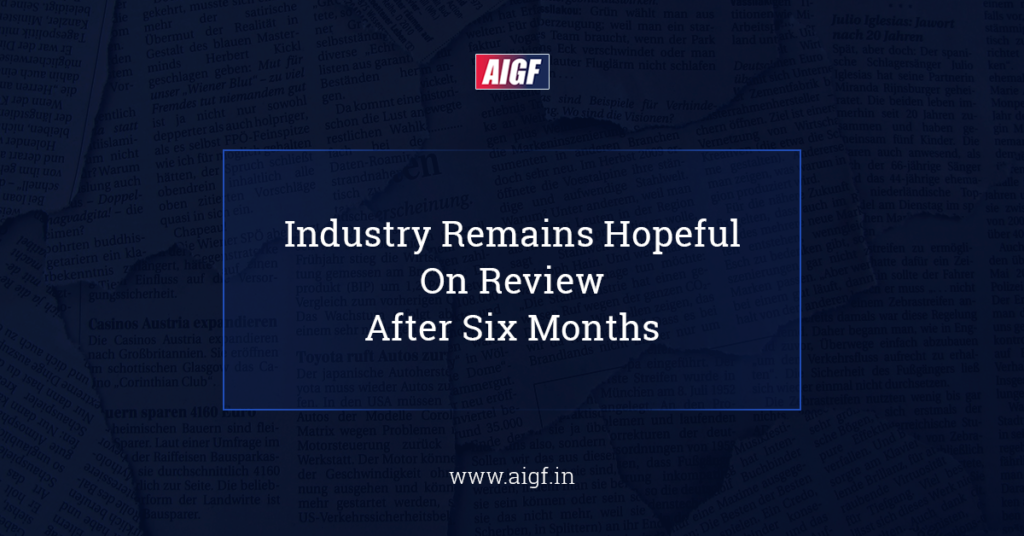Clarification by the GST council states that the 28% tax on online gaming will apply only to the initial deposit by gamers, offering relief to bigger gaming companies. Smaller startups still face closure, prompting hope for a review of the levy after six months.
Industry Remains Hopeful On Review After Six Months
The clarification made by the GST Council on Wednesday that a 28% tax would not be imposed on all subsequent competitions, but on the initial amount deposited by gamers on an online platform to engage in gaming activities, may provide some relief to bigger gaming companies.
Smaller startups and firms, however, will remain vulnerable to closure, according to industry associations and legal professionals. Gaming companies have now turned their attention to the six-month review process of the levy.
The online gaming companies’ tax burden will still be around 400-500% as the GST collected is much higher than what the companies actually earn for the services they offer to the players on their platforms.
For example, let’s say a gamer makes a deposit of Rs 1,000 from his bank account to his gaming wallet account. The gaming wallet account is taxed at 28% of the total deposit amount. But what happens if he enters a contest and wins Rs 300? Well, then there’s no tax on that Rs 300. So, every time a new amount is transferred from your bank account to your gaming wallet, it will be taxed.
“We believe the decision by the GST Council of valuation on deposits will severely impact the online gaming sector and result in a situation where a majority of players, including the MSMEs will no longer be able to survive in the face of the increased tax liability of 400-500%,” said All India Gaming Federation (AIGF). The Federation represent 120 companies that specialize in online skill gaming, across esports, fantasy, casual, and card games.
“Only established and well-entrenched skill gaming companies may be able to scrape through this change by using their existing capital reserves to counter the effects of substantially increased tax liability. However, even their revenues and valuations will significantly fall,” the federation also added they hope that there will be reconsideration after six months and that a more stable and gradual approach could be put forward.
“Investors in this sector may continue to be concerned given the ‘blow hot, blow cold’ approach towards online gaming as a sector where on the one hand, the sector is lauded and encouraged through ‘light touch’ regulations by the MeitY and on the other hand punitive taxation is reaffirmed to be imposed under GST (despite several pleas from the sector),” said Sudipta Bhattacharjee, Partner at Khaitan & Co.
Saumya Singh Rathore, co-founder of WinZO said, “Taxing GST on deposits rather than the technology platform commission charged by the companies will make the unit economics unviable, wiping out 80% of the industry, with fatality concentrated in MSMEs and startups that house new age business models. This increase of 400% will solely encourage the rise of monopolistic play”.
According to Rathore, “reasonable taxation can protect our over 500 million internet consumers from illegal offshore products”.
While the government has made clear its intention to crack down on offshore pay-to-earn platforms, the gaming companies still believe that it will be hard to track down and block every website not complying with the law.
Ankur Gupta, Practice Leader – Indirect Tax at audit and advisory firm SW India, said, “By including virtual digital assets, the government has plucked the overseas gaming platforms who have no base in India and operate only on cryptos or alike if they have Indian customer base”.
“It will be interesting to see how the government will keep track of compliance by overseas players and how much effective blocking work as operating through changed IP address is a common phenomenon in the industry,” he said.
Shivani Jha, a tech policy lawyer said, “The heavy tax burden will be detrimental for gaming companies and gamers. Trickling to the livelihoods of game developers, who make the game. The blanket provision on skill and chance games further muddles due process. Additionally, this may move users to illegal offshore betting platforms”.
Credit: Financial Express











Comments
Comments are closed.